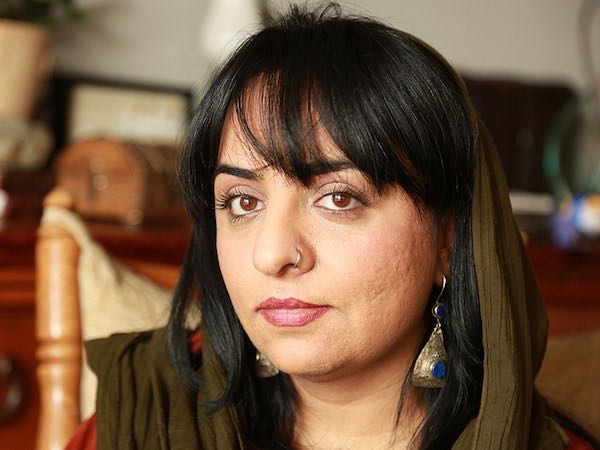This year, the Ca' Foscari Short Film Festival, which will take place from October 6th to 11th, will be all about gender equality and women's rights. In addition to the films in competition, special programmes will address women's rights in the international arena. Among them, one programme will be dedicated to the Herat International Women's Film Festival, featuring Alka Sadat, a young Afghan director, sister of the founder Roya Sadat and coordinator of the festival. Alka Sadat will be in Venice to talk about the difficulties related to the festival, and to present her documentary Aghanistan Night Stories, about the Afghan army fighting against the Taliban. The documentary will be presented in different locations of the festival. "I think especially nowadays this documentary will raise a lot of questions in the audience," she tells us.
The festival organised by you and your sister Raya could not take place this year.How did you feel about that?
It was very bad, for me it's still a shock to talk about, especially if I think about how the festival started: we had nothing, no funds or sponsors. We were just a group of people who decided to hold a festival in a city where twenty years earlier the Taliban had razed a cinema to build a mosque. That street in Herat is still called "cinema street" by everyone, even though there hasn't been a cinema there for twenty years. But we won't stop the festival: for now it is not possible to hold it in Afghanistan, so we are trying to do it in some neighbouring country, but we don't want to cancel it.
At Ca’ Foscari Short Film Festival you are going to present your documentary Afghanistan Night Stories. Can you give us a taste of what it’s about?
Afghanistan Night Stories is about Commandos, a part of the Afghan army that fought against the Taliban. It has a very strong message: it collects the testimonies of many young people who are part of it. One of the four main characters in the documentary was killed by the Taliban during filming. This of course changed everything: we had become very close friends behind the cameras, and he was full of hope for the future of Afghanistan. He had three young daughters and he envisioned a bright future for them. Then he was killed and I don't know what happened to his children — I wonder what happened to them now that the Taliban are back in charge. These are the little girls you see at the beginning of the film talking about their daddy: for them he is in a better place, with God feeding him good food.
From your perspective, as a young woman and filmmaker, what does the new Taliban government mean for Afghanistan?
I can’t think at all about myself, my situation or my work - which I do love more than anything else! When the Taliban came I felt one of the worst feelings of my life and I couldn't stop crying, thinking about those who remained in Afghanistan and especially the women who live there. My thoughts went above all to them: we have worked for over twenty years for women's rights and human rights in general and now it's all gone: we are back to twenty years ago. Before there were realities which women could turn to in case of need. Now, in a situation of violence against women and under the Taliban regime, their voices are not heard.
What role does cultural production play as resistance to an oppressive regime?
I'm not hopeful about that and I'm afraid that it will not help people in Afghanistan. The Taliban try to make people believe that the situation has changed in order to gain international support, but things are exactly as they were twenty years ago: there are frequent executions and laws that violate human rights. I don't know how much cultural production can help with this. International countries are putting more pressure on the Taliban to circumvent their strict laws. I hope that the attempt at communication and awareness that is being made outside the country through culture can help.
Let's talk about the field of cinema: what is your connection with CFSFF? What topics will be important to address through cinema in the future for the next generations?
I am very excited to come to Venice! My sister [director Roya Sadat] and I have a lovely bond with Italy and many good memories of scholarships and awards received. My first international trip was to Italy and I arrived on a military plane... It was a very different situation from now. I am happy to come back to Italy again to participate in the festival, which is a great opportunity for emerging filmmakers.
As for the topics that should be addressed, I’ll give an example with my country, which is in a really difficult condition: it's important to show what's really going on in people's lives, even in its dramatic aspects, and this can be done especially through documentaries, which can make people aware of this situation and hopefully will promote a climate of peace. At the same time, we need to be careful not to confuse what is really happening with the images we see on social media. I would say that social media has really changed society and can create psychological issues. In a country like Afghanistan where life is almost "stuck" you can still look at different realities on social media and this can be a source of suffering. It is important to educate future generations to be aware that the reality that emerges from social media does not always correspond to the truth.










